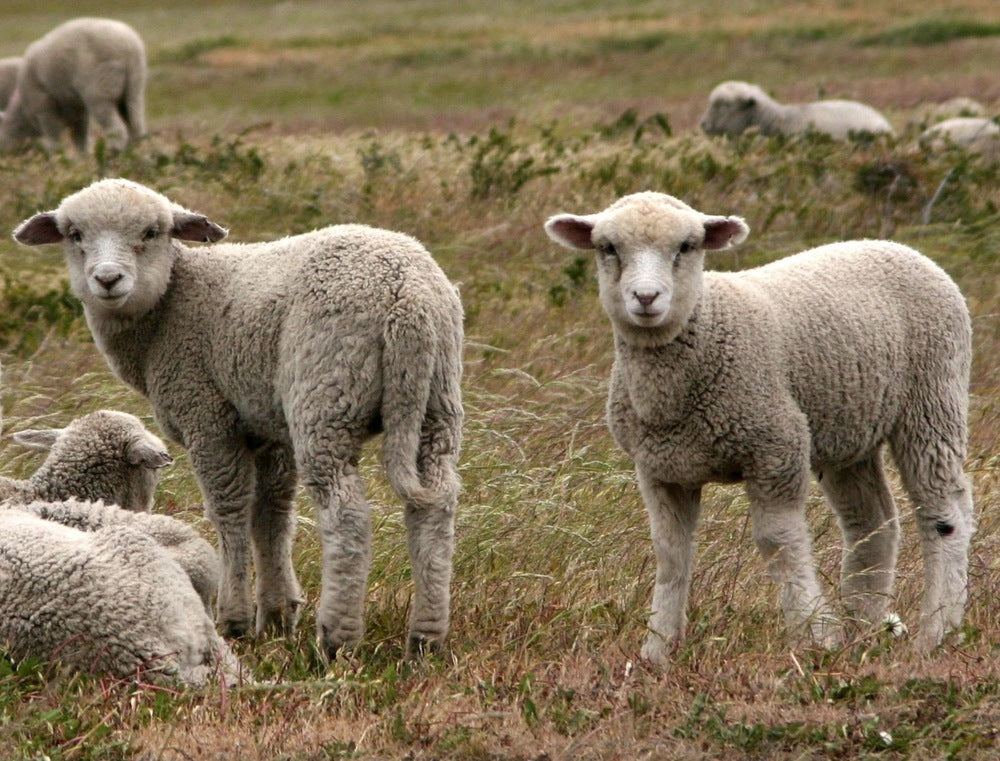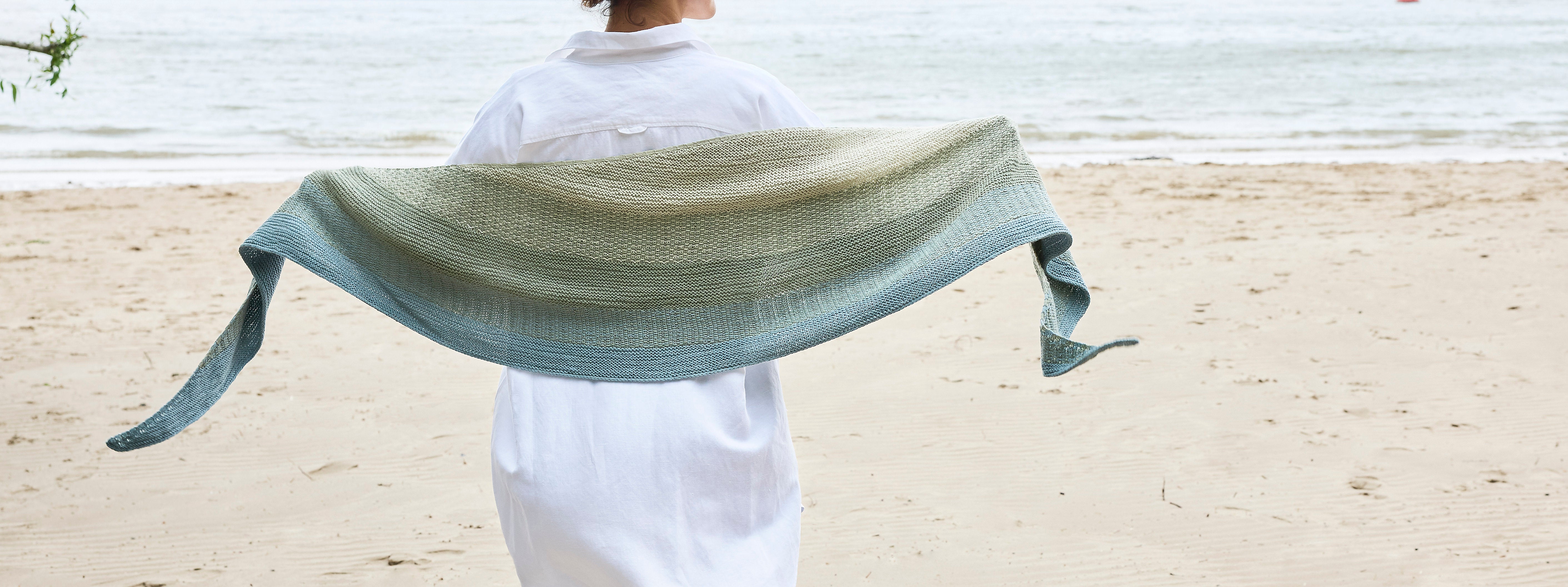Mulesing: Dieses Tierleid muss nicht sein
Merinowolle ist unglaublich beliebt. Kein Wunder, denn sie ist nicht nur temperaturausgleichend und atmungsaktiv, sondern durch ihre besonders feinen Fasern auch wunderbar weich. Leider wird bei ihrer Produktion häufig das sogenannte Mulesing praktiziert. Dies war der Grund dafür, dass wir angefangen haben, selbst Garne herzustellen.
Was ist Mulesing und wo kommt es vor?
Der allergrößte Teil der weltweit produzierten Merinowolle kommt aus Australien, ein kleinerer aus Neuseeland. Dort sind die Schafe besonders anfällig für Fliegenmadenbefall und die dabei entstehenden Infektionen können lebensbedrohlich werden.
Besonders die verschmutzten Hautfalten an der Afterregion sind gefährdet für die Besiedlung durch die Maden der Schafschmeißfliege. Eine Gegenmaßnahme ist das Mulesing, benannt nach dem australischen Schafzüchter John Mules. Dabei schneidet man den Lämmern die Hautfalten rund um den After ab und lässt die Wunde unversorgt heilen. Die sich danach bildende glatte Narbenfläche bietet den Fliegen keine gute Grundlage mehr. Meist werden aus Kostengründen weder während des Eingriffs noch danach Betäubungsmittel verabreicht.
Wegen seiner Grausamkeit lehnen wir dieses Verfahren entsetzt ab. Die Anfänge unserer Firma fußen auf diesem Entsetzen.
Neuseeland hat das Mulesing 2018 verboten. In Australien jedoch gilt lediglich eine Empfehlung entsprechend der jeder Schafzüchter selbst entscheiden darf, ob seine Schafe gemulest werden oder nicht. Jährlich wird der Eingriff bei über zehn Millionen Lämmern in Australien durchgeführt und löst nicht einmal das Problem des Fliegenmadenbefalls.
Was kann man gegen Mulesing tun?
Ein regelmäßiges Stutzen der Wolle an den besonders anfälligen Stellen kommt wegen des hohen Kosten- und Zeitaufwands nicht massenhaft zum Einsatz. Und auch die Behandlung mit Insektiziden ist teuer, darüber hinaus gesundheitlich bedenklich und allein deshalb schon keine wirkliche Alternative.
Der vermutlich nachhaltigste Lösungsansatz ist eine tierfreundliche Zucht, wieder weg von übermäßig vielen Hautfalten und Bewollung. So wären die Schafe auf ganz natürliche Weise dem Fliegenmadenbefall nicht länger ausgeliefert.
Bis es allerdings so weit ist, kann man darauf achten, woher die Wolle kommt. Und sie nur noch aus Regionen beziehen, in denen Mulesing verboten oder nicht üblich ist, Südamerika zum Beispiel. Im trockenen, kühlen Klima in Patagonien ist für die Tiere dort Fliegenmadenbefall keine Gefahr.
VerbraucherInnen können sich an Siegeln wie GOTS (Global Organic Textile Standard) und RWS (Responsible Wool Standard) orientieren, die Mulesing verbieten und die für Nachverfolgbarkeit und die Einhaltung von Standards bei der Produktion sorgen.
Was machen wir?
Wir haben 2012 Rosy Green Wool aus dem Wunsch heraus gegründet, bessere Wolle ohne Tierleid herzustellen.
Unsere Wolle stammt ausnahmslos aus kontrolliert biologischer Tierhaltung (kbT) von Züchtern in Argentinien, garantiert ohne Mulesing, ohne chemische Schafbäder und lange Schlachttransporte. Wir lassen uns über das GOTS-Siegel durch unabhängige Zertifizierer regelmäßig kontrollieren.
Dafür wurden wir ausgezeichnet: Die Tierschutzorganisation Vier Pfoten hat 2020 erstmals ein Ranking für Merino-Handstrickgarne hinsichtlich Mulesing herausgegeben. Dabei wurden wir, leider noch als einzige von 28 Firmen, als “Platinum Champion - Garantiert mulesing-frei” geehrt.
Und wir versuchen, soviel Bewusstsein zu schaffen wie möglich. Rosy war zu diesem Thema Gast bei Planet Wissen. Patrick hat sich bei GOTS aktiv dafür eingesetzt, dass die verbindlichen Standards auch in Australien streng kontrolliert werden.
Vier Pfoten hat zudem die Kampagne Wolle mit Po gestartet, im Zuge derer auch du diese Petition gegen Mulesing unterschreiben kannst. Nur gemeinsam können wir ein Bewusstsein schaffen und so Australien zur Aufgabe dieser Praxis bewegen und damit ein glücklicheres Leben der Schafe erreichen.


